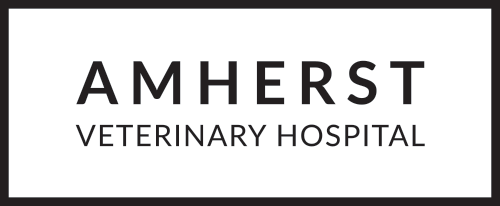As a Vancouver animal hospital it is us our goal to make sure the animals of our community are safe and healthy. One way we take action is by sharing information that educates pet owners about potential hazards and risks. Threats are not always obvious. In fact, many of them are very surprising. To help prevent potential problems — and keep you and your pet out of the ER — we’ve compiled this list of five hidden threats to your dog.
5. House Plants and Flowers. Keeping plants and flowers in the house is very common but unfortunately some varieties can be harmful to your dog. Amaryllis and daffodils are two examples of toxic plants. Around the holiday months, mistletoe and holly can also present problems. If any of these plants are ingested, serious harm can occur. Symptoms of poisoning vary, but some common reactions are gastrointestinal discomfort, vomiting or diarrhea, inactivity or loss of energy, and difficulty breathing. If you ever suspect your dog has been poisoned seek medical attention immediately. (Poison Control 604-682-5050)
4. Summer. The season of fun in the sun is here and since that means more time outdoors and warmer weather, it could also mean danger for your dog. During summer months dogs are more likely to suffer from heat stroke. This can occur from exercising in high temperatures or prolonged exposure to the sun. To avoid overheating, opt to take your pet out in the mornings and evenings when temperatures are cooler and the sun less powerful. Additionally, make sure your dog’s water bowl is kept full so they can stay cool and avoid dehydration. Read more about overheating here.
3. Second-Hand Smoke. Most of us are well aware of the problems second-hand smoke can cause, but few of us have considered how it impacts our animals. Health problems can occur in pets of smokers, including asthma, bronchitis, allergic lung disease, and even cancer. While quitting the habit entirely is the best way to protect your pet, other ways to safeguard your dog from tobacco is by smoking outdoors or away for your pet, and always washing your hands immediately after smoking.
2. Pesticides. Many homeowners protect their yard from insects by spraying pesticides but these same chemicals can be harmful to your pets. After going outdoors many dogs groom their feet and coats, which can become saturated with pesticides after a walk. To ensure the pesticides you use are not toxic, look for “pet safe” labels and avoid products with organophosphates and carbamates. If you’re still unsure, double-check with your veterinarian.
1. Dinner. “What’s mine is yours” is a kind gesture, but not a safe one when it comes to your pets. Many families share their food with their dogs. While to an extent most foods are harmless, others can be deadly. Chocolate is a well-known kryptonite for dogs, but less known villains, such as onions, grapes, garlic, avocados and bread dough, can be just as dangerous. Keep harmful foods out of reach, and check with your veterinarian before sharing dinner with your dog.
To be prepared in an emergency, we advise keeping the phone number and address of your nearest Vancouver animal hospital somewhere safe and accessible by your entire family. If you have any questions about potential threats to your pet, feel free to contact us.
